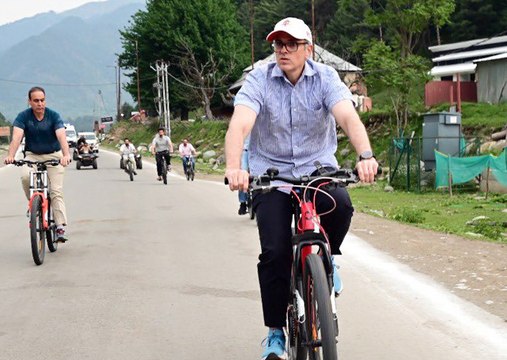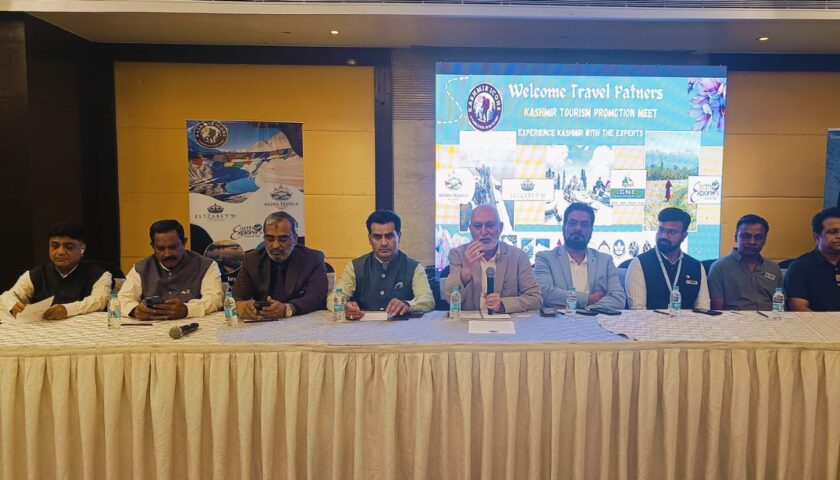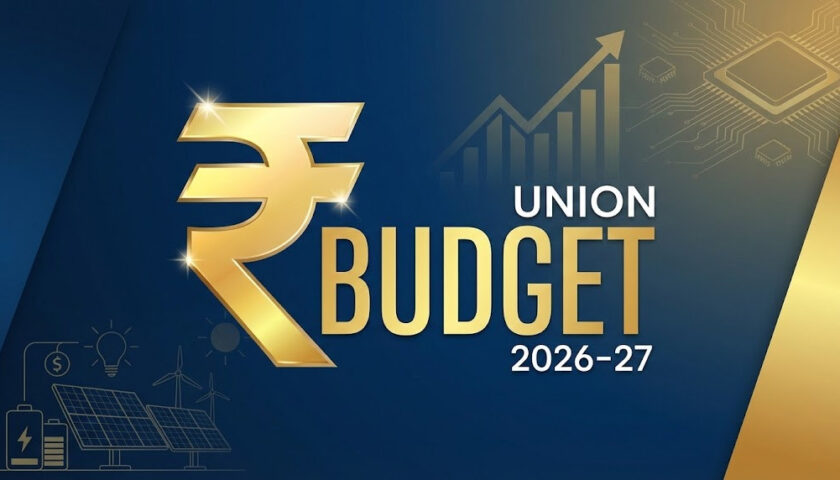Omar Abdullah Leads the Charge Against ‘Boycott Kashmir’ Campaign: A Battle to Save Kashmir’s Tourism Soul
In the wake of the tragic Pahalgam terror attack on April 22, 2025, a social media-driven storm began to take shape — the #BoycottKashmir campaign. Frustrated, misinformed, and emotionally charged voices across platforms started advocating a travel boycott of the Kashmir Valley. But one prominent voice stood tall against this tide — that of Omar Abdullah, former Chief Minister of Jammu and Kashmir.
Abdullah didn’t just condemn the campaign — he called it what it truly is: a misdirected, damaging movement that inadvertently aligns with the objectives of the very terrorists responsible for the violence. His rallying cry to the Central Government to take strict action has now evolved into a broader movement to protect and revive Kashmir’s vital tourism industry.
In this in-depth feature, we delve into the heart of the controversy, the revival strategies underway, the political underpinnings, and why Kashmir’s tourism remains not just alive — but resilient and ready.
The ‘Boycott Kashmir’ Campaign: How Misinformation Fuels Economic Sabotage
In the aftermath of the Pahalgam incident, several social media influencers and users began urging Indian tourists to avoid traveling to Kashmir. Hashtags like #BoycottKashmir and #DontVisitKashmir started trending, fueled by grief, anger, and political narratives.
While the emotions behind these sentiments may be valid, the campaign’s implications are far-reaching. Kashmir’s economy is deeply intertwined with tourism — from shikara rowers on Dal Lake to hotel owners in Gulmarg, to local artisans in Srinagar’s markets. A drop in tourism isn’t just a dip in leisure — it’s a blow to thousands of livelihoods.
Abdullah was swift and clear in his response. He labeled the boycott movement a tool that plays into the hands of terrorists. “Those promoting this boycott share the same objective as the militants — to derail Kashmir’s peace and progress,” he said in a media briefing.
Also Read | Travel Industry Unites: ‘Chalo Kashmir & Kashmir Calling’ Gains Nationwide Support
Omar Abdullah’s Direct Appeal to the Centre: Crackdown on Digital Hate
Understanding the power of online narratives, Abdullah demanded that the Central Government take strict action against those promoting hate and economic harm under the guise of nationalism. He urged agencies like the NIA, CBI, and cybercrime cells to identify and investigate those involved in this coordinated campaign.
His appeal resonated with many — including several political leaders, human rights activists, and tourism stakeholders — who recognized the dangerous precedent this boycott sets. Abdullah emphasized the need to distinguish between condemnation of violence and punishment of an entire population already bearing the brunt of instability.
“You don’t punish Kashmiris for the actions of terrorists. You stand with them,” Abdullah remarked.
High-Stakes Meetings in Pahalgam & Gulmarg: Showing Kashmir is Open for Tourism
To counter the negative perception head-on, Omar Abdullah initiated a highly symbolic move: conducting cabinet meetings in tourist destinations like Pahalgam and Gulmarg. This wasn’t just administrative — it was a visual statement to both India and the world that Kashmir is safe, functioning, and welcoming.
The decision to hold these meetings in open-air venues, surrounded by tourists and media, allowed for real-time coverage of peace and normalcy. In one notable clip that went viral, a group of tourists from Gujarat even joined the press conference, praising the Valley’s warmth and beauty.
These high-level engagements were followed by meetings with over 70 top tour operators from across India. Held in Srinagar, the sessions discussed marketing strategies, safety protocols, and partnership plans to project Kashmir as a safe and premium destination in 2025 and beyond.
Positive Tourism Storytelling: A Lesson from Global Successes
Abdullah and his team are not just relying on local goodwill. They’re taking notes from international destinations that have faced similar crises:
1. Sri Lanka’s Post-War Rebranding
After its decades-long civil war, Sri Lanka launched aggressive destination marketing, focusing on spiritual tourism, tea estates, and UNESCO heritage sites. Governmental outreach combined with global travel partnerships helped reposition the country.
2. Rwanda’s Tourism Rebirth
Once marred by genocide, Rwanda became a leader in eco-tourism and conservation. Initiatives like gorilla trekking, digital storytelling, and community-based travel experiences changed the narrative.
3. Colombia’s Reinvention Through Adventure Travel
Colombia, long synonymous with conflict, rebranded itself by spotlighting coffee tourism, cultural heritage, and adventure sports. Government-backed campaigns and influencer partnerships played a vital role.
The message for Kashmir is clear: narrative matters. And the battle for perception is often as critical as the one on the ground.
Also Read | ‘Kashmir is Calling’: Regional & International Efforts Ignite Tourism Renaissance
Rebranding Kashmir: The 2025 Vision for a Premium, Safe, and Diverse Travel Experience
With lessons from global tourism revival stories, Kashmir’s stakeholders — led by Abdullah and supported by local businesses — are working to rebrand the Valley into more than just a scenic escape.
- Travel Influencer Collaborations
Kashmir’s tourism department is working with Instagram travel bloggers, YouTube creators, and journalists to document real-time experiences. The idea is simple: Let tourists tell the truth of Kashmir through reels, stories, and vlogs. - SEO-Driven Digital Campaigns
From Google Ads to targeted email marketing, Kashmir’s tourism board is investing in boosting online visibility. Campaigns like #RealKashmirExperience and #SafeInKashmir are gaining traction. - Cultural & Wellness Retreats
Beyond sightseeing, Kashmir is promoting wellness tourism — yoga retreats in Sonamarg, Sufi music evenings in Srinagar, and silent hiking expeditions in Doodhpathri.
Expanding Beyond Snow & Scenery: Thematic Tourism Niches in Kashmir
While the classic image of Kashmir remains snow-draped peaks and houseboats on Dal Lake, the Valley has much more to offer:
Adventure Tourism
Trekking routes in Aru, white-water rafting in Pahalgam, paragliding in Sonamarg, and backcountry skiing in Gulmarg are being developed and promoted aggressively.
Eco & Agro Tourism
Farm stays in Pampore (home to saffron fields), orchard visits in Shopian, and tea garden tours are becoming new favorites.
Heritage & Spiritual Tourism
Visits to ancient temples in Awantipora, Sufi shrines in Srinagar, and Buddhist monasteries in Ladakh are being integrated into culturally-rich packages.
Community-Led Tourism: The Backbone of Kashmir’s Revival
What sets Kashmir apart from many destinations is its people. Abdullah’s tourism strategy places the local population at the center:
- Local Hospitality Training: Empowering locals with hospitality skills for jobs in hotels, guiding, and transport.
- Artisan Showcases: Promoting crafts like papier-mâché, pashmina weaving, and carpet making through walk-in workshops and museum-style markets.
- Traveler Assurance Programs: Real-time feedback portals, helpline numbers, personalized guides, and safety app integrations are part of the effort to build visitor trust.
Political Will Meets Economic Necessity: Tourism as a Peace Strategy
For Omar Abdullah, defending tourism isn’t just economic — it’s political. A thriving tourism sector proves peace, stability, and people’s trust. It disrupts separatist narratives and creates jobs that disincentivize militancy.
His critics may call the revival a PR move. But on the ground, for thousands of Kashmiris, tourism is survival. And Abdullah’s push is seen not just as leadership, but solidarity.
Also Read | Kashmir Tourism Reimagined: JKL Travels Unveils Unbeatable Discounts to Revive the Valley’s Charm
Exclusive Travel Offers from JKL Travels: Reviving the Economy Through Experience
To encourage a return to the Valley, JKL Travels and KashmirTravels have introduced exclusive travel offers:
Luxury Kashmir Escape
Stay in 5-star resorts at 4-star rates. Includes guided tours, curated cultural experiences, and spa treatments with Himalayan views.
Budget Adventure Packages
Students and young travelers can enjoy group treks, snow sports, and camp stays at affordable prices — starting as low as INR 9,999.
Group & Corporate Deals
Family reunions, MICE events, and office retreats come with up to 30% off, free airport transfers, and custom itineraries.
Final Thoughts: The Valley Stands Tall
The call to boycott Kashmir may have found momentary traction. But what’s louder is the voice of resilience — from Omar Abdullah’s leadership to the everyday efforts of Kashmir’s tour guides, hoteliers, and shopkeepers.
Kashmir is not broken. It’s rebuilding. With safety protocols, digital outreach, and political will, the Valley isn’t just ready — it’s thriving again.
So, the next time you see a hashtag asking you to avoid Kashmir, remember there’s another one waiting for you: #ComeToKashmir.




